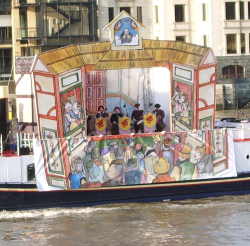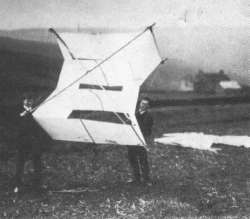Byron urges social networking safety code: but is it the poet’s own work?
Has the enfant terrible turned into a Daily Mail reading Conservative? Byron, who wrote so contemptuously of the Poet Laureate in Don Juan?
Although ‘t is true that you turn’d out a Tory at
Last, – yours has lately been a common case.
It turns out that the headline in today’s Guardian: ‘Byron urges social networking safety code’, is all about teaching children to use the Internet safely. It’s a report by Dr Tanya Byron and is full of sensible advice, though regular reference to what ‘Byron says’ are a little disconcerting to those of us more familiar with the poet. Can you image George Gordon Noel, Sixth Baron Byron, that scourge of conformity and convention, writing: ‘Byron has also recommended a code of practice to cover the moderation of user-generated content’? No, I thought not.
‘Celebrity scandal seems much more his line, whether creating it himself or writing about it at the expense of his enemies. It turns out that, according to another article on the Guardian website today, this is just what today’s teenagers enjoy reading. The list of their best and least loved reading matter makes fascinating reading itself. Number 4 on the ‘Most loathed reads’ list is ‘Magazine articles about skinny celebrities’; top of the ‘Most loved reads’ list is: ‘Heat magazine’. Strangely, as the journalist cannot resist pointing out, ‘the cover and pages six to 12 of this week’s favourite read Heat are devoted to the subject’ of skinny celebrities. But whoever expected teenagers to be consistent?
More on Byron – the poet – here.
 John’s Ruskin’s complaint at the desecration of the Derbyshire Dales featured in The Guardian on Saturday. ‘Every fool in Buxton can be at Bakewell in half-an-hour, and every fool in Bakewell at Buxton,’ Ruskin thundered. ‘Call me a fool,’ Matthew Fort wrote, ‘but I can see any number of good reasons to be in Bakewell…. How many towns the size of Bakewell, I wondered, could boast a Tiroler Stüberl, Austrian Coffee Shop & Sausage Importer?’ The answer, I suspect, lies in the large number of tourists who flock there – those same ‘Workmen and Labourers of Great Britain’ whom Ruskin addressed, perhaps, and their womenfolk? Continue reading “Every fool in Bakewell: Ruskin’s rant refuted”
John’s Ruskin’s complaint at the desecration of the Derbyshire Dales featured in The Guardian on Saturday. ‘Every fool in Buxton can be at Bakewell in half-an-hour, and every fool in Bakewell at Buxton,’ Ruskin thundered. ‘Call me a fool,’ Matthew Fort wrote, ‘but I can see any number of good reasons to be in Bakewell…. How many towns the size of Bakewell, I wondered, could boast a Tiroler Stüberl, Austrian Coffee Shop & Sausage Importer?’ The answer, I suspect, lies in the large number of tourists who flock there – those same ‘Workmen and Labourers of Great Britain’ whom Ruskin addressed, perhaps, and their womenfolk? Continue reading “Every fool in Bakewell: Ruskin’s rant refuted”
 Literary Connections made the pilgrimage to Bankside on Shakespeare’s birthday on Wednesday and was rewarded by the sight of a miniature (and appropriately stagy) Elizabethan theatre sailing up the Thames in the evening sunlight, announced by the sound of trumpets (or were they sackbuts?) and drums. You can, I hope, see something of this in the photograph. It was hardly Cleopatra’s ‘burnish’d throne’ but impressive enough to entertain the crowd on the riverbank and sufficient to make us feel touched by a little of the Bard’s magic for the evening.
Literary Connections made the pilgrimage to Bankside on Shakespeare’s birthday on Wednesday and was rewarded by the sight of a miniature (and appropriately stagy) Elizabethan theatre sailing up the Thames in the evening sunlight, announced by the sound of trumpets (or were they sackbuts?) and drums. You can, I hope, see something of this in the photograph. It was hardly Cleopatra’s ‘burnish’d throne’ but impressive enough to entertain the crowd on the riverbank and sufficient to make us feel touched by a little of the Bard’s magic for the evening.  It is not only phonics that are synthetic these days – even the English rose is artificial. The one you can see here is an example. The English rose is not a reference to the daughter who is wearing it (delightful though she is, of course) but to the flower. Driving through Mottram in Longdendale on Saturday (19 April, so it was not even St George’s Day), we were greeting with the surreal sight of a man dressed as St George (that is, the St George of Daily Express mastheads and comic books) handing out red roses to drivers waiting at the traffic lights.
It is not only phonics that are synthetic these days – even the English rose is artificial. The one you can see here is an example. The English rose is not a reference to the daughter who is wearing it (delightful though she is, of course) but to the flower. Driving through Mottram in Longdendale on Saturday (19 April, so it was not even St George’s Day), we were greeting with the surreal sight of a man dressed as St George (that is, the St George of Daily Express mastheads and comic books) handing out red roses to drivers waiting at the traffic lights. 
